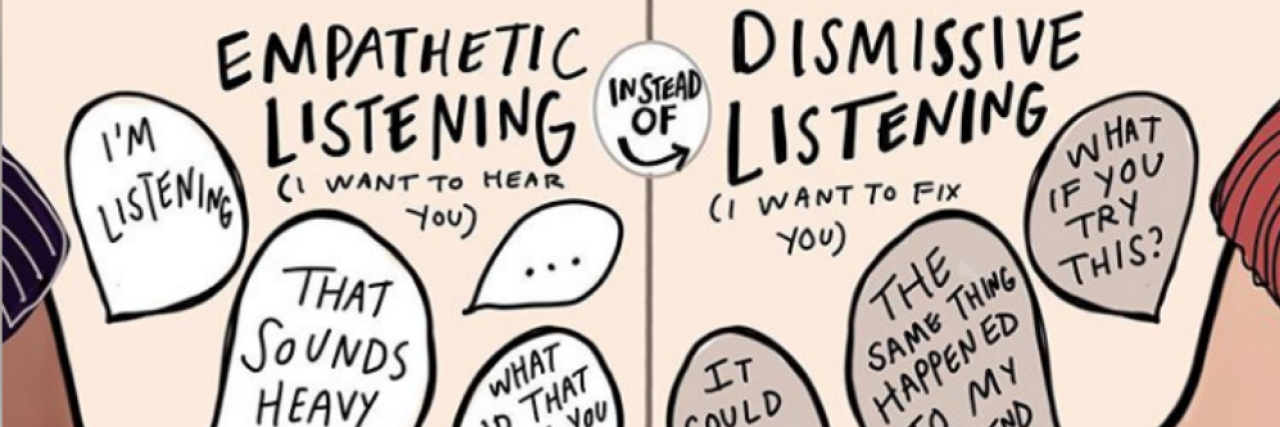The Difference Between 'Empathetic' and 'Dismissive' Listening
Being heard is an innate human desire. We have a deep-rooted thirst to feel connected, accepted and deeply understood. In a world filled with empty “how are you’s” and half-honest conversations, how do we do a better job at listening to each other? That is the question that kept circling around in my head as the world closed in on us and opened our eyes.
What do we do with all of the pain? I would argue that we start by listening to it.
This gap in communication became more and more apparent to me as the world shut down. I have never been the type to spill my guts without some serious probing. I was having conversation after conversation with friends and family about the heaviness around us and was simultaneously answering the question “how are you” with “I’m fine” because I felt like the space wasn’t big enough for an honest reply. I wonder how many people feel this way too. How many people have shared a part of themselves with someone they trust to ultimately feel rejected or dismissed in the process?
It is more important than ever to check in with the people we love in a way that leaves space for honesty and vulnerability. And when honesty and vulnerability are present, it is important that we are ready to actively and empathetically listen.
What is empathetic listening? To me, it is hearing every word with my mind, body and soul and intentionally quieting myself to make room for the weight of someone else’s struggle. It is following heavy emotion with a love-filled silence that leaves room for the feeling to be as big as it needs to be rather than a “you’re going to be OK” that makes the feeling shrink back inside.
As much as we can agree that we want to be heard, we have a similar desire to avoid pain and discomfort. And while the idea of being dismissive is aversive to us, it sometimes comes naturally in the face of someone else’s pain. It is worth exploring the ways that we are inclined to confront someone else’s feelings. We want to help people, so if you see yourself on the dismissive side of the graphic, your intention is often pure, to fix. It is a natural human response to pain. We want to heal it and make it go away, especially if someone we love is struggling. However, in order for honest expressing to come forward, it’s important that we embrace silence that often comes with vulnerability. This can feel heavy and anxious but it is a worthwhile wave to ride.
Does this mean that there is no action? No moving forward? No helping? Of course not. It means that before someone can jump into action or hear an opinion about what is weighing them down, it is important that their pain is given space to stand on its own, to be honored and heard. The challenge here is to pause first and listen with intentionality, as sometimes the “fixing” comes through honest expressing.
I think it is important to note that empathetic listening is a practice that requires two willing participants. Communicating what you need from the other person will help the process. If you aren’t in a mental or emotional space to listen whole heartedly, be honest about your emotional capacity to avoid dismissing someone else’s pain because yours is swallowing you.
You were made to be heard. Let us change and be changed by the art of listening well.
To see more from Keeley, follow her on Instagram and visit her website.


